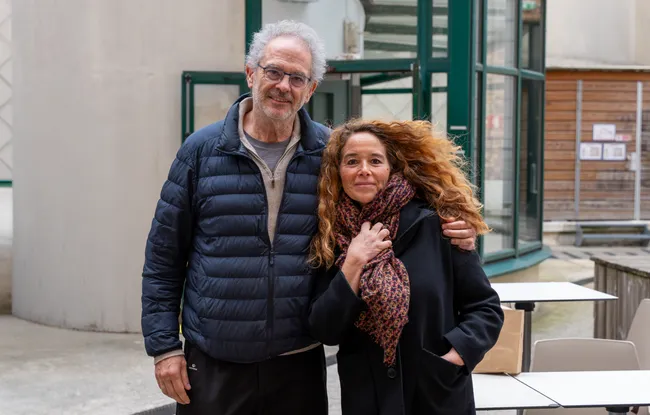- Home >
- Institut Curie News >
- The PR[AI]RIE institute, specializing in AI, obtains an endowment of €75 million and becomes PR[AI]RIE-PSAI
PR[AI]RIE (PaRis Artificial Intelligence Research InstitutE) is committed to transforming interdisciplinary research, training, and innovation in AI, with a particular focus on medicine and other key areas. It brings together leading academic institutions such as PSL University, including Institut Curie, as well as Paris Cité University, the CNRS, Inria, the Institut Pasteur, and major industrial players such as Google and Meta.
Five years since its inception, the institute renewed its budget with € 75 million from the AI Cluster program of the France 2030 plan, thus becoming PR[AI]RIE-PSAI (Paris School of AI).
The institute specializes in education and training by offering a complete and integrated curriculum, from bachelor's degree to doctorate, with innovative pedagogical approaches such as the CPES (multidisciplinary cycle of higher education), a new international bachelor and professional training. At the doctoral level, the objective is to multiply the number of new theses in fundamental and applied AI.
PR[AI]RIE-PSAI also encourages entrepreneurship and aims to create 50 new deep tech startups by 2030, backed by a €150 million investment fund.
Institut Curie at the service of innovation in AI applied to health
Institut Curie brings essential interdisciplinary expertise to integrate AI in the fields of biomedical and clinical research, thanks to the involvement of Drs. Emmanuel Barillot and Irène Buvat, and that of Prof. Thomas Walter (all three holders of a chair) and that of Prof. Chloe-Agathe Azencott and Dr. Laurence Calzone as fellows.
Chairholders receive funding of up to €500,000 per chair, making it possible to finance the recruitment of PhD students and postdoctoral researchers specializing in AI applied to oncology without them having to apply for scholarships. This simplified procedure, which often helps avoid delays of several months, facilitates the rapid start of new research projects. In return, the chairs commit to providing more courses.
The fellows do not receive direct financing, but they have access to PR[AI]RIE-PSAI calls for tenders.
- Le Dr Emmanuel Barillot utilise l'IA pour intégrer des données complexes, telles que les analyses génomiques et les images médicales, afin d’améliorer la compréhension et les traitements du cancer.
- Le Dr Irène Buvat se concentre sur l'imagerie moléculaire et le traitement des images médicales, visant à renforcer la précision des diagnostics, des pronostics et des suivis thérapeutiques grâce à des techniques avancées d'IA.
- Le Pr Thomas Walter développe des méthodes en IA pour analyser des images biomédicales, incluant les coupes de tissus entiers et la transcriptomique spatiale, afin de mieux comprendre les maladies et d’optimiser les traitements personnalisés.
- La Pre Chloé-Agathe Azencott développe des méthodes avancées d’identification de caractéristiques génomiques associées à un diagnostic ou un pronostic, utilisant l’IA pour modéliser les interactions subtiles entre les variables génétiques et cliniques.
- Le Dr Laurence Calzone, spécialiste en modélisation mécanistique du cancer, explore l'hétérogénéité tumorale, les métastases et la réponse aux traitements en utilisant la signalisation intracellulaire, les modèles booléens et l’IA pour ses simulations.
En savoir plus
Le Dr Emmanuel Barillot est directeur de l’unité Cancer et génome : bioinformatique, biostatistiques et épidémiologie des systèmes complexes, et chef de l’équipe Biologie des systèmes du cancer (Inserm U900 / Mines Paris – PSL).
Le Dr Irène Buvat est la directrice de l’unité Laboratoire d’imagerie translationnelle en oncologie (LITO) (Inserm U1288).
Le Pr Thomas Walter est professeur à Mines Paris – PSL et chef de l’équipe Apprentissage statistique et modélisation des systèmes biologiques (Inserm U900 / Mines Paris – PSL).
La Pre Chloé-Agathe Azencott est professeure à Mines Paris – PSL et enseignant chercheur dans l’équipe Apprentissage statistique et modélisation des systèmes biologiques (Inserm U900 / Mines Paris – PSL).
Le Dr Laurence Calzone est ingénieure de recherche et co-responsable de l’équipe Biologie des systèmes du cancer (Inserm U900 / Mines Paris – PSL).
Research News
Discover all our news
Celebration
The Immunity and Cancer research unit (U932) celebrates its twentieth anniversary
12/12/2025
Artificial Intelligence
08/12/2025


![L’institut PR[AI]RIE](/_ipx/fit_cover&f_webp&q_80&s_650x415/https://cdn.curie.fr/media/news_image/6%25C3%25A8me%2520actu.png)